Education:
Ph.D. University of Oklahoma Health Sciences Center
B.S. Oklahoma Christian University
Post-doctoral Fellowship:
Washington University in St. Louis
Research Interests:
Cellular and molecular biology of apicomplexan parasites. Areas of special interest include parasite motility, protein secretion, second messenger signaling, genetics, and pathogenesis.
Contact Information:
Lab: BMSB 913
Office: BMSB 907
Email: kevin-brown@ouhsc.edu
Phone: 405-271-2133 ext:46630
Twitter: @KevinBrownLab
Research Interests:
Apicomplexan parasites remain a leading threat to global health due to their ability to invade, co-opt, and destroy host cells. Apicomplexans use gliding motility to enter and exit host cells but must remain static for intracellular replication, stage development, and chronic persistence. To precisely regulate motility, apicomplexans utilize cyclic nucleotide signaling where cGMP and cAMP cascades stimulate and suppress motility, respectively. The primary focus of our laboratory is to identify and characterize enzymes responsible for cyclic nucleotide signaling in apicomplexan parasites. Our workhorse parasite of choice is Toxoplasma gondii, a highly tractable apicomplexan that infects billions of humans and countless animals worldwide. Current projects relate to three key signaling questions:
- How do apicomplexans generate cyclic nucleotides in response to their host environment?
- How do apicomplexans buffer and integrate opposing cGMP and cAMP signals into a unified motile response?
- What targets of cyclic nucleotide-dependent kinases are required for activation or suppression of apicomplexan motility?
Our research pipeline utilizes bioinformatics, transcriptomics and proteomics to identify candidate signaling enzymes that are conserved among all apicomplexans. Next, candidate enzymes are screened for function in vitro and in vivo using reverse genetics. Finally, key molecular determinants of enzyme activity are defined using genetic and biochemical mutational analyses. Our long-term goal is to leverage these protein/function studies to rationally develop novel anti-apicomplexan drug and/or vaccine therapies.
Current Lab Personnel:
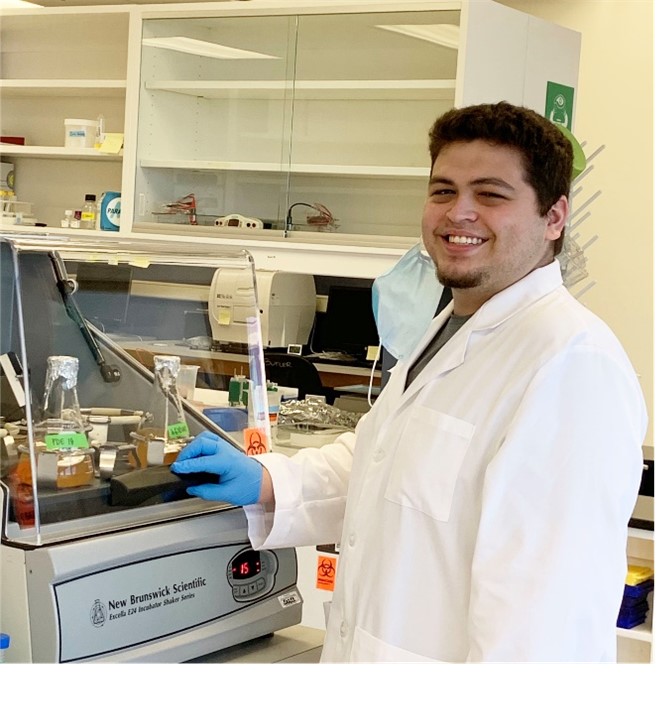 William Moss
William Moss
Graduate Research Assistant
BS Biochemistry
Texas State University
Lab: BMSB 913
Phone: 405-271-2133 ext. 30559
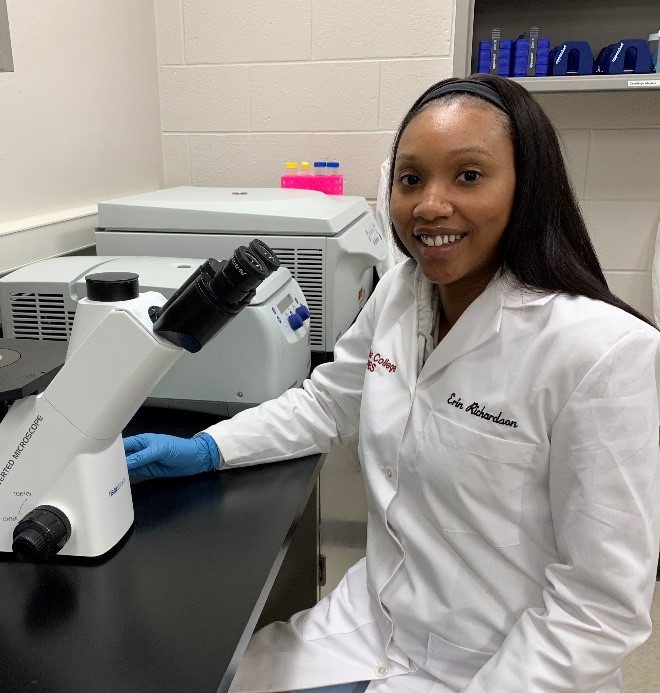 Erin Richardson
Erin Richardson
Graduate Research Assistant
BS Chemistry
Langston University
Lab: BMSB 913
Phone: 405-271-2133 ext. 30559
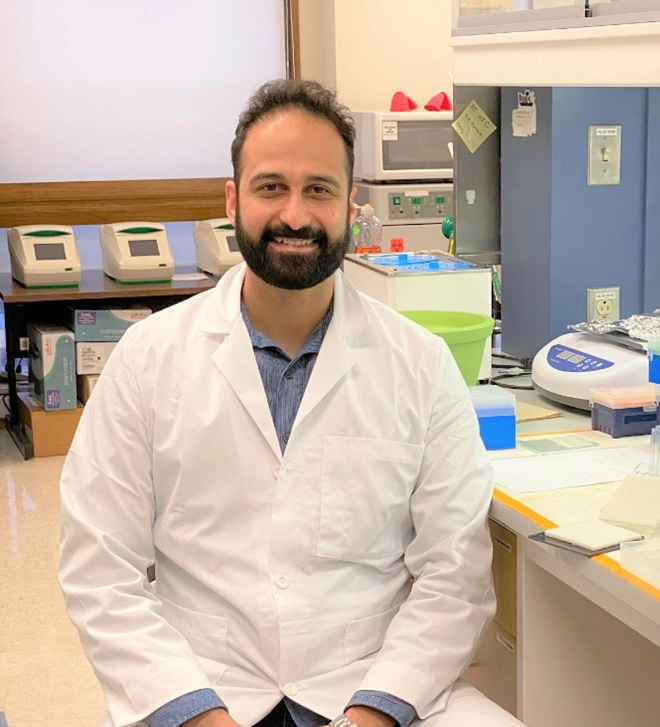 Gabriel Cabral, PhD
Gabriel Cabral, PhD
Postdoctoral Fellow
PhD Biosciences and Biotechnology
State University of Northern Rio de Janeiro
Lab: BMSB 913
Phone: 405-271-2133 ext. 30559
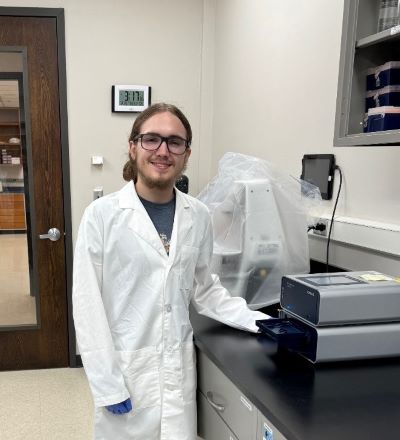 Dawson Otey
Dawson Otey
Undergraduate Research Assistant
BS Microbiology
University of Oklahoma
Lab: BMSB 913
Phone: 405-271-2133 ext. 30559
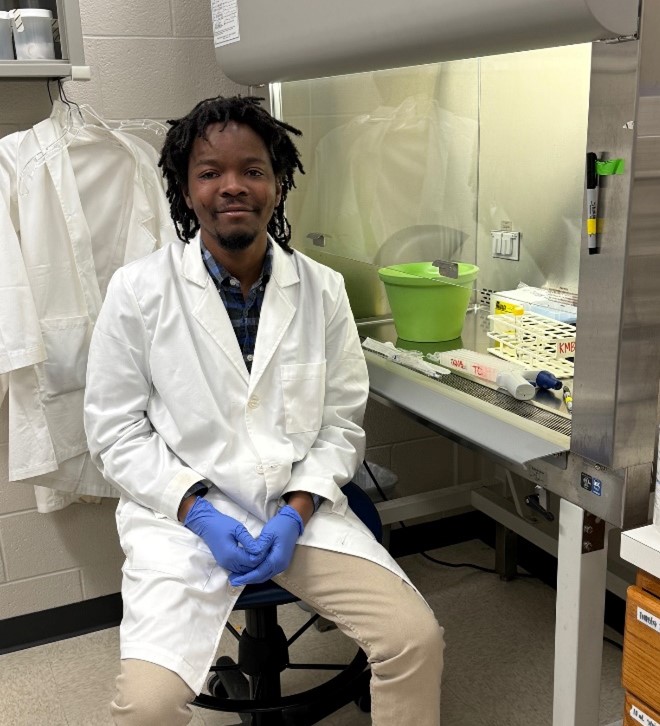 Sebastian Nasamu, PhD
Sebastian Nasamu, PhD
Postdoctoral Fellow
PhD Molecular Microbiology & Microbial Pathogenesis
Washington University in St. Louis
Lab: BMSB 913
Phone: 405-271-2133 ext. 30559
LAB ALUMNI:
Caitlyn Rivera – Research Assistant
Zachary Mearse – SURE student
Alexander Jochmans – SURE student
Current Employment Opportunities:
- Graduate students admitted to the OUHSC GPiBS program may contact Dr. Brown about setting up a 6 week rotation.
Undergraduates looking for summer research experience should apply to one of OUHSC’s REU programs.
Selected Publications:
- Moss WJ, Patterson CE, Jochmans AK, Brown KM. (2022) Functional Analysis of the Expanded Phosphodiesterase Gene Family in Toxoplasma gondii Tachyzoites. mSphere. 7(1):e00793-21. https://doi.org/10.1128/msphere.00793-21.
- Brown, K.M. and Sibley, L.D. (2018) Essential cGMP Signaling in Toxoplasma is Initiated by a Hybrid P-Type ATPase-Guanylate Cyclase. Cell Host & Microbe. https://doi.org/10.1016/j.chom.2018.10.015.
- Long, S., Brown, K.M., Drewry, L.L., Anthony, B., Phan, I.Q.H., Sibley, L.D. (2017) Calmodulin-like proteins localized to the conoid regulate motility and cell invasion by Toxoplasma gondii. PLoS Pathog. 13(5): e1006379.
- Brown, K.M., Long, S., Sibley, L.D. (2017) Plasma membrane association by N-acylation governs PKG function in Toxoplasma gondii. mBio 8:e00375-17. https://doi.org/10.1128/mBio.00375-17.
- Brown, K.M., Lourido, S., Sibley, L.D. (2016) Serum Albumin Stimulates Protein Kinase G-dependent Microneme Secretion in Toxoplasma gondii. J Biol Chem. 2016;291(18):9554–65.
- Shen, B., Brown, K.M., Lee, T.D., Sibley, L.D. (2014) Efficient gene disruption in diverse strains of Toxoplasma gondii using CRISPR/CAS9. mBio. 5(3):e01114-14. doi:10.1128/mBio.01114-14.
Related Resource Publications:
- Moss WJ, Brusini L, Kuehnel R, Brochet M, Brown KM. (2024) Apicomplexan phosphodiesterases in cyclic nucleotide turnover: conservation, function, and therapeutic potential. mBio15:e03056-23. https://doi.org/10.1128/mbio.03056-23
- Long, S., Brown, K.M. and Sibley, L.D. (2018) CRISPR-mediated Tagging with BirA Allows Proximity Labeling in Toxoplasma gondii. Bio-protocol 8(6): e2768. DOI: 10.21769/BioProtoc.2768.
- Brown, K.M., Long, S. and Sibley, L.D. (2018) Conditional Knockdown of Proteins Using Auxin-inducible Degron (AID) Fusions in Toxoplasma gondii. Bio-protocol 8(4): e2728. DOI: 10.21769/BioProtoc.2728.
- Shen, B., Brown, K., Long, S. and Sibley L.D. (2017) Development of CRISPR/Cas9 for Efficient Genome Editing in Toxoplasma gondii. Meth Mol Biol. 2017;1498:79–103.
A complete list of Kevin Brown's publications can be found here.